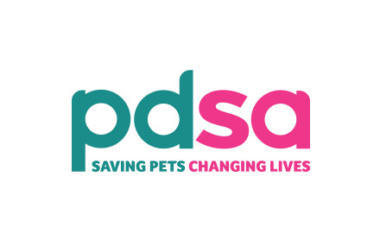PDSA saw its income rise by £4m in 2019 but is facing a £20m deficit this year, according to its recently published accounts.
Total income was £112m for the year ending December 2019, with legacy income contributing over £50m to this figure, the accounts show. Expenditure was £102m, ensuring this was the third consecutive year that the charity reported a net surplus, following deficits in 2016, 2015 and 2014.
Going forward, PDSA expects that it will see a £20.5m deficit in 2020 and then a £3.6m deficit in 2021, but is confident that it has enough in its reserves to cope.
Jan McLoughlin, director general, says in her introduction to the report: “We went into 2020 with clear, exciting and ambitious plans. To reach more pets and people in need. To strengthen our brand so more people know us and choose to support our cause. We had planned a comprehensive review of our digital platforms and to develop closer relationships with partner organisations and groups in our local communities.
“Instead, we find ourselves responding to the global Covid-19 crisis and adjusting to the challenges this brings.”
Meanwhile, John Smith, chair, states: “The impact of this crisis on PDSA will be significant. It is certain that the financial hardship that will follow this pandemic will increase the demand for our services, perhaps to levels we have never seen before.”
Legacy income
Legacy income accounts for around 45% of PDSA’s total income, and the accounts attribute 2019’s income growth to “another good year for legacy income”.
However, they note: “We have seen a slowdown in legacy estate settlements as a result of probate administrative changes. This means we are able to account for our legacy entitlement in most cases, but have seen a slower arrival of cash.”
The accounts also say the charity is expecting the pandemic to impact on legacy income. “The Covid-19 crisis has slowed the pace at which estates are administered and wound down. This will impact the rate at which we receive cash from legacy gifts throughout 2020.”
Coronavirus will have a ‘significant’ impact
PDSA describes the pandemic as having a “significant adverse impact on our financial position”.
It expects to have an overdraft of £8.2m at the end of July 2021 and to have drawn down £6m from its investment portfolio to support cash balances.
During the height of the crisis, PDSA furloughed staff, closed its shops and reduced its services to cater only for emergencies.
It also redirected its spending on fundraising to digital channels and towards generating short-term rather than long-term returns.
“During April, over 800 of our staff were furloughed within the government’s Coronavirus Job Retention Scheme as we closed our charity shops and ceased other activities. This has been hard for our colleagues who want to continue to work and support PDSA at this time.”
The charity says that government schemes have helped to protect the charity.
“Despite the pandemic affecting trading performance since March, our operating results in the first six months of 2020 showed a surplus and were better than budgeted. This was in part due to government financial assistance.”
At a peak, 40% of PDSA's staff were furloughed under the Coronavirus Job Retention Scheme.
The charity has also benefited from non-domestic rates reductions and grants from local government, and said it has negotiated rent reductions with landlords.
However, its investment portfolio, which formed 71% of the charity’s net assets at the end of 2019, has declined by 4.9%, and the accounts report that “such a reduction has a material impact on reserves”.
Healthy reserves
At the end of 2019, PDSA's level of reserves was above the targeted level.
The charity’s reserves policy is to hold between £50m and £75m in free reserves to cover the cost of a year’s veterinary expenditure and support costs.
At 31 December 2019, the charity had free reserves of £79.7m.
“The year’s unexpectedly good results, particularly in legacies and investment returns, have taken free reserves beyond the range set by council, above. It is important to note that some of the income we raise in each year is earmarked for future spending, though it is not formally restricted,” the accounts state.
When the accounts were signed at the end of July, free reserves stood at £74.6m.
“We have considered different scenarios for the future and created financial projections accordingly. Our current view is that our free reserves could reduce to £51.8 million by July 2021, which is at the lower end of the range set by trustees,” the accounts add.
Related articles












